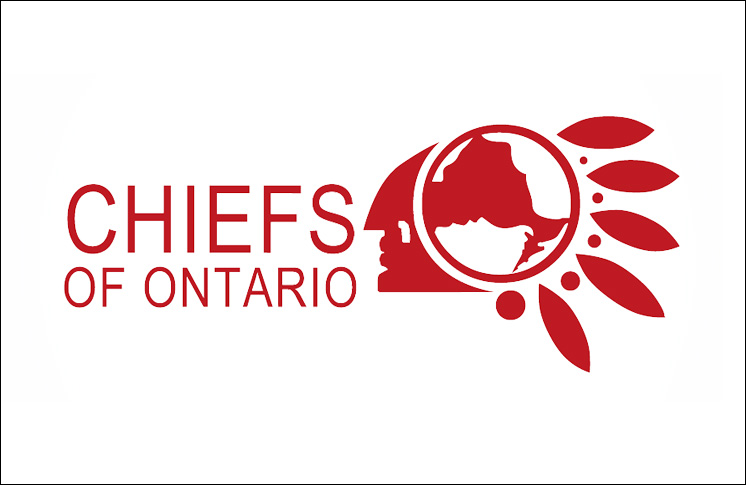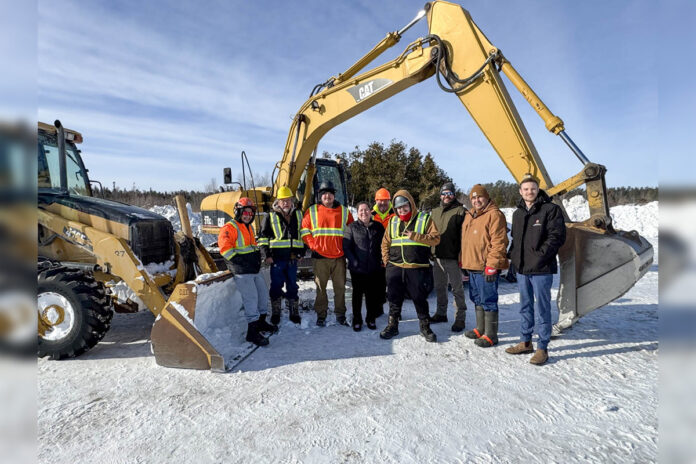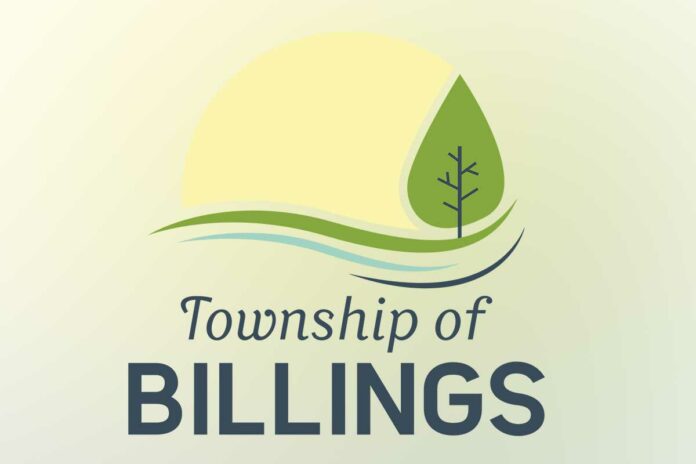TORONTO—The Chiefs of Ontario (COO) and Nishnawbe Aski Nation (NAN) leadership voted nearly unanimously to a resolution to ratify the $8.5 billion Ontario Final Agreement on the Long-Term Reform of the First Nations Child and Family Services (FNFCS) program. At a COO special chiefs assembly last Wednesday in Toronto, 76 chiefs and proxies voted in favour of the agreement, four were opposed and three abstained out of a total of 133 eligible First Nations. The agreement, which is specific to Ontario, is worth 8.5 billion over nine years beginning in 2025-2026, with the caveat that the Canadian Human Rights Tribunal (CHRT) must approve the settlement by March 31, 2026.
“I am super excited this has passed,” stated Patsy Corbiere, Chief of Aundeck Omni Kaning First Nation. “I voted in favour of this proposal.”
“The issue is, in this day and age of drug use, we need prevention and intervention and capital resources to put in place initiatives that will help resolve these issues in our communities,” said Chief Corbiere. “This agreement should never have become political in nature. It is an issue of providing what is needed for the betterment of our children and community. This agreement is all about the children that we service, and how these services should be provided, in our own communities.”
“I am really glad this vote passed,” stated Chief Corbiere. “This agreement is all about the children that we service, and how they should be serviced.”
The agreement follows the Assembly of First Nations (AFN) having rejected a $47.8 billion offer last year, with Canada at this point refusing to restart the nationwide negotiations.
“Today is an important day but today is not about an individual. It is about our collective efforts in this region to advance the priorities that you have set out,” Ontario Regional chief Abram Benedict said at the signing agreement. “You have told us, ‘We need to stop the discrimination in our region.’ We need to bring the resources to our communities. We need to enhance our jurisdiction. We need to be able to support our families today. We can’t wait for a national agreement.”
Ontario Regional Chief Benedict and Nishnawbe Aski Nation Grand Chief Alvin Fiddler also issued the following statement. “We are so proud of our leadership for their unwavering dedication to reforming the broken child welfare system for our children today. This is a significant step forward in a process that has been ongoing for nearly 20 years. It has been nine years since COO and NAN applied for intervenor status at the Canadian Human Rights Tribunal (CHRT) to both represent the unique interests of remote First Nations and to ensure that First Nations retain decision-making over their own child and family services. “NAN’s participation at the table was vital in ensuring that the realities of our remote communities were recognized and accounted for in this process,” Chiefs Benedict and Fiddler said. “We have achieved groundbreaking results, including an evidence-based process for adjusting funding to account for the increased costs associated with delivering services in remote areas.”
“When the National Final Agreement that was approved by our leadership in October was rejected at the Assembly of First Nations, we didn’t give up. Our leadership was determined to protect the significant advancements made, and so we carried on, pushing to do what is best for our children. The Ontario Final Agreement that was ratified today is not a new agreement but builds upon the hard work that has been done to reform the FNCFS and will bring long-overdue change. We know that this is not the end of the road, and we will continue to advocate for meaningful change. We are not at the beginning of a new day: the start of true, community-driven reform.”
“Chiefs have expressed their inherent right to make decisions regarding their children and they expect that these decisions be respected as this process unfolds before the CHRT and beyond,” Chiefs Benedict and Fiddler continued. “Any attempts to delay the implementation of these decisions will be considered an unacceptable interference in this inherent jurisdiction. We therefore call upon all other parties to refrain from any interference that could impact the agreement’s approval and implementation. We will similarly act in support of Chiefs in other regions who wish to make similar decisions that impact their children.”
Sheshegwaning First Nation Chief Alana Endanawas said, “on February 26 we passed a resolution to support and ratify the Ontario final agreement on the long-term reform of the First Nations Child and Family Services Program and the Trilateral agreement in respect of reforming the 1965 agreement. This agreement allocates funding for the provision of child and family service to first nations communities. This will be a significant development for us, as it will enable us to establish our own child and family services program for Sheshegwaning First Nation. This is a step forward for children and families throughout the territory.”
“It was certainly good news that this agreement on long term child reform was supported by the Ontario chiefs on February 26,” said Whitefish River First Nation Chief Rodney Nahwegahbow. “First Nation leadership have always been pushing to get proper funding especially since the current mechanism was old and failed to meet the needs of our first nation children for both on and off reserve.”
“The long-term reform of the child and family services program funding announcement will provide $8.5 billion over a period of nine fiscal years,” said Chief Nahwegahbow. “This is a substantial increase from our previous funding arrangements and carries with it our ability to deliver an increased level of culturally appropriate services. We have lived and tried to manage an old system that didn’t reflect the need of our children and youth. I am grateful for the work and advocacy of our past and present first nation leadership, our tribal councils, COO and NAN for the perseverance that has led to this agreement.”
The Ontario final agreement commits Indigenous Services Canada (ISC) to provide $8.5 billion over nine fiscal years. The intent of the agreement is to address systemic issues, prioritize the welfare of First Nations children, and empower First Nations across Ontario to determine how best to provide culturally appropriate child and family services. The effectiveness of the reformed FNCFS program will be reviewed at the five-year mark and before the end of the nine-year period to ensure it continues to meet the needs of First Nations children and Families.
Indigenous Services Minister Patty Hajdu was on hand last Wednesday for the signing ceremony with the two chiefs. She said, “this agreement today signifies that a whole new generation of our children are not going to have to go through what many, many of you have gone through, noting that First Nations people have been widely impacted by a colonial system that used apprehension of children, theft of culture, language, land and tradition as a tool to undermine inherent rights.”
Minister Hajdu praised Prime Minister Justin Trudeau for granting her the mandate to move this agreement along in Ontario, after the original offer had been rejected by the AFN.
The agreement also commits Canada to work with COO and NAN to pursue reform under the 1965 agreement with the government of Ontario, including off-reserve funding. The 1965 agreement currently exists as a cost-sharing agreement between Canada and Ontario, setting out the formula Canada uses for reimbursing Ontario for the cost of delivering social assistance, childcare, homemaking and child and family services on-reserve.
“Yesterday, I had the distinct honour of witnessing a momentous and landmark occasion with the passing of the Ontario Final Agreement by the Chiefs of Ontario,” said Anishinabek Grand Council Chief Linda Debassige. “The collective discussion to advance incremental and tangible change for our children rooted in inherent rights and jurisdiction of our communities to take care of our own is a true demonstration of unity and vision.”
“We’ve come a long way from prior to 2016 where fiscal allocations in relation to First Nations child welfare services were non-existent due to the discriminatory practices of the federal government. As with any negotiation, the agreement is not perfect. However, it does create a pathway forward for our communities and our children while allowing our leadership to continue to address the outstanding issues that are important to Anishinabek Nation member First Nations.”
National Chief Cindy Woodhouse Nepinak said, “Ontario’s final First Nations child care agreement will create sweeping positive changes for children and families across the territory. We lift up Ontario Regional Chief Abram Benedict, Nishnawbe Aski Nation Grand Council Chief Alvin Fiddler and all Ontario chiefs for their leadership to help end discrimination in Canada’s racist child welfare system. They have been good relatives to the next generations of First Nation children.”
The agreement aims to partly resolve a human rights complaint filed by the Assembly of First Nations and First Nations Child and Family Caring Society in 2007.
“We can be a leader on this for all other provinces,” said Chief Corbiere.
The final step before the agreement comes into effect is the approval form the Canadian Human Rights Tribunal.





